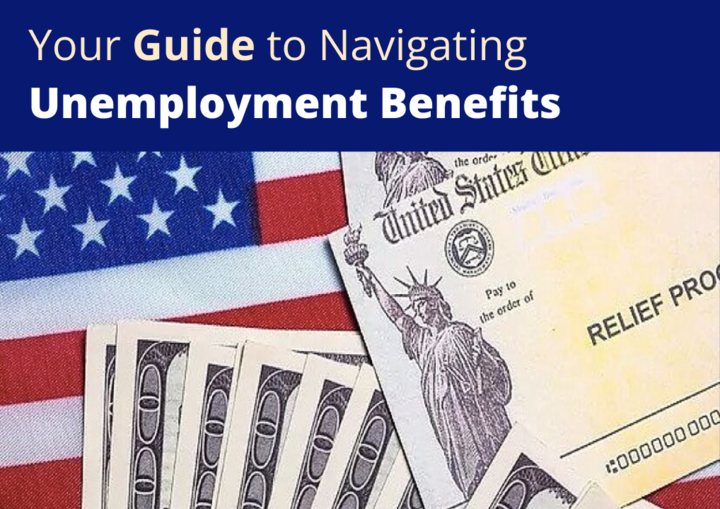Auto warranties serve as a crucial safety net for vehicle owners, providing peace of mind against unexpected repair costs. Typically, there are two primary types of warranties: manufacturer warranties and extended warranties. Manufacturer warranties, often referred to as factory warranties, are included with the purchase of a new vehicle and cover defects in materials and workmanship.
These warranties usually last for a specific period, often three to five years or a certain mileage limit, such as 36,000 to 60,000 miles, whichever comes first. Coverage can vary significantly depending on the manufacturer and the specific vehicle model, with some brands offering more comprehensive plans than others. Extended warranties, on the other hand, are purchased separately and can extend coverage beyond the original manufacturer warranty.
These plans can cover a wide range of components, including the engine, transmission, electrical systems, and even some wear-and-tear items. The duration of extended warranties can vary widely, with options available for several years or up to 100,000 miles or more. Understanding the specifics of what is covered and for how long is essential for vehicle owners to make informed decisions about their warranty options.
Key Takeaways
- Auto warranties cover specific parts and repairs for a certain period of time.
- Auto warranties can save you thousands of dollars in repair costs over the lifetime of your vehicle.
- Extended warranties may not always be worth the investment, depending on the reliability of your vehicle and the coverage offered.
- To make the most of your auto warranty, it’s important to keep up with regular maintenance and follow the manufacturer’s guidelines.
- Common misconceptions about auto warranties include the belief that all repairs will be covered and that extended warranties are always necessary.
The Cost of Repairs: How Auto Warranties Can Save You Thousands
The financial implications of auto repairs can be staggering. For instance, a simple repair like replacing a starter motor can cost anywhere from $400 to $800, while more complex issues such as transmission repairs can run into the thousands. According to a study by AAA, the average cost of vehicle repairs has increased significantly over the past decade, with many drivers facing bills that can easily exceed their budget.
This is where auto warranties come into play, acting as a buffer against these rising costs. By having an auto warranty in place, vehicle owners can save substantial amounts on repairs. For example, if a covered component fails and requires replacement, the warranty may cover the entire cost of parts and labor, leaving the owner with little to no out-of-pocket expense.
This financial protection is particularly valuable for those who own vehicles that are known for having high repair costs or for those who drive older models that may be more prone to mechanical failures. In essence, an auto warranty can transform what could be a financial burden into a manageable expense.
Extended Warranties: Are They Worth the Investment?
The debate over whether extended warranties are worth the investment is ongoing among car owners and industry experts alike. Proponents argue that extended warranties provide essential coverage for vehicles that may experience significant issues as they age. For instance, as cars accumulate mileage, components such as the alternator or water pump may fail due to wear and tear.
An extended warranty can mitigate these risks by covering repairs that would otherwise be costly. However, critics of extended warranties often point out that many drivers may never need to utilize them. Statistics suggest that a significant percentage of vehicle owners do not experience major issues within the extended warranty period.
Additionally, some argue that the cost of purchasing an extended warranty can outweigh the potential savings on repairs. To make an informed decision, it is crucial for consumers to assess their vehicle’s reliability history, their driving habits, and their financial situation before committing to an extended warranty.
How to Make the Most of Your Auto Warranty
To maximize the benefits of an auto warranty, vehicle owners should familiarize themselves with the terms and conditions outlined in their warranty agreement. This includes understanding what is covered and what is not, as well as any specific maintenance requirements that must be met to keep the warranty valid. For example, many warranties require regular oil changes and inspections at specified intervals; failing to adhere to these guidelines could result in a voided warranty.
Additionally, keeping detailed records of all maintenance and repair work performed on the vehicle is essential. This documentation serves as proof that the owner has complied with the warranty’s requirements and can be invaluable when filing a claim. When it comes time to make a claim, being organized and prepared can streamline the process and ensure that repairs are completed promptly.
Engaging with authorized service centers that are familiar with the warranty process can also facilitate smoother interactions when seeking coverage for repairs.
Common Misconceptions About Auto Warranties
There are several misconceptions surrounding auto warranties that can lead to confusion among consumers. One prevalent myth is that all repairs are covered under an auto warranty. In reality, most warranties have specific exclusions and limitations.
For instance, routine maintenance items such as brake pads or tires are typically not covered because they are considered wear-and-tear items. Understanding these limitations is crucial for vehicle owners to avoid unexpected expenses. Another common misconception is that purchasing an extended warranty is always beneficial.
While extended warranties can provide peace of mind for some drivers, they may not be necessary for everyone. Many newer vehicles come equipped with reliable technology and components that rarely fail within the first few years of ownership. Therefore, it is essential for consumers to evaluate their individual circumstances and vehicle reliability before deciding on an extended warranty.
How to Choose the Right Auto Warranty for Your Vehicle
Assessing Your Vehicle’s Make and Model
First and foremost, vehicle owners should assess their car’s make and model, as some brands offer more comprehensive coverage than others. For example, luxury brands may have higher repair costs due to specialized parts and labor rates; thus, a robust warranty could be more beneficial for these vehicles.
Comparing Warranty Providers
Additionally, potential buyers should compare different warranty providers and their offerings. Not all warranties are created equal; some may have more extensive coverage options or better customer service ratings than others. Reading reviews and seeking recommendations from trusted sources can help consumers make informed choices.
Understanding the Fine Print
It’s also wise to scrutinize the fine print of any warranty agreement to understand exclusions and limitations fully.
When considering auto warranties, consumers often face the choice between manufacturer warranties and third-party options. Manufacturer warranties typically offer several advantages, including coverage that aligns closely with factory standards and access to authorized service centers that use original equipment manufacturer (OEM) parts. This ensures that repairs are performed according to the manufacturer’s specifications, which can be crucial for maintaining vehicle performance and resale value.
On the other hand, third-party warranties may provide more flexible options in terms of coverage duration and cost. These plans can sometimes be tailored to meet specific needs or budgets, making them appealing for certain consumers. However, it’s important to research third-party providers thoroughly; not all companies have the same reputation or reliability as manufacturer-backed plans.
Evaluating customer reviews and understanding claims processes can help ensure that consumers choose a reputable provider.
How to Avoid Voiding Your Auto Warranty
Maintaining an active auto warranty requires adherence to specific guidelines set forth by the warranty provider. One common way consumers inadvertently void their warranties is by failing to perform required maintenance at specified intervals. For instance, if a vehicle owner neglects regular oil changes or skips scheduled inspections, they may find themselves without coverage when a significant issue arises.
Another critical factor is ensuring that any repairs or modifications made to the vehicle comply with warranty terms. Using non-OEM parts or having unauthorized service centers perform repairs can lead to complications when filing claims. To avoid these pitfalls, vehicle owners should keep meticulous records of all maintenance activities and ensure they follow manufacturer recommendations closely.
By being proactive in maintaining their vehicles and understanding their warranty agreements thoroughly, consumers can protect their investments and enjoy peace of mind knowing they are covered in case of unexpected repairs.
FAQs
What is an auto warranty?
An auto warranty is a contract between the vehicle owner and a warranty provider, typically the manufacturer or a third-party company, that covers the cost of certain repairs and maintenance for a specified period of time or mileage.
What types of auto warranties are available?
There are several types of auto warranties, including bumper-to-bumper warranties, powertrain warranties, extended warranties, and certified pre-owned warranties. Each type of warranty offers different levels of coverage and duration.
How can auto warranties save you money on repairs?
Auto warranties can save you money on repairs by covering the cost of certain repairs and maintenance services that would otherwise be out-of-pocket expenses for the vehicle owner. This can potentially save thousands of dollars over the life of the warranty.
What should I consider when purchasing an auto warranty?
When purchasing an auto warranty, it’s important to consider the coverage limits, exclusions, deductible amounts, and the reputation of the warranty provider. It’s also important to understand the terms and conditions of the warranty before making a purchase.
Are there any drawbacks to auto warranties?
Some drawbacks to auto warranties may include coverage limitations, exclusions for certain types of repairs, and the potential for denied claims if the vehicle owner does not adhere to the maintenance requirements outlined in the warranty contract. It’s important to carefully review the terms of the warranty before purchasing.







